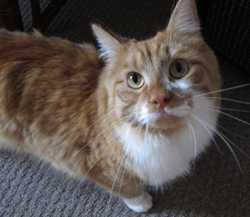At Netroots Nation this week, Brandon Silverman of CrowdTangle (a new social media monitoring tool) noted something interesting: people are much more likely to respond to positive content on Facebook. I.e., a happy story typically will get many more Likes, Shares and Comments than a negative story, which many of us have noticed in practice.
The under-performance of buzzkill content has an obvious implication for political advocates, since most of us are trying to CHANGE things. I.e., we’re pointing out something that we think is wrong, bad, or downright horrible, and trying to motivate people to do something about it. Consequently, we often use scary/outraged/inflammatory language and imagery in our online communications (typical nonprofit email subject line: “WE’RE ALL GONNA DIE!!!!!!!!!!!!!!”).
Brandon attributed the tendency of Facebook users to Like positive content in part to basic reasons why we go to the site — for entertainment, for social reinforcement or for a pick-me-up. I’m sure he’s right, but I also wonder if another dynamic is at play: the very nature of the “Like” button.
In my personal life on Facebook, I’ve run into this dilemma many times: someone’s posted something sad and I want to give reinforcement, but I can’t exactly say that I “Like” the fact that their dog died or their momma’s back in prison (re the latter: I AM from Texas, after all). Usually I don’t have something in mind that seems right to leave as a comment, so I end up doing nothing, even though I’d like to leave some token of emotional support.
Nonprofits almost certainly run into a similar problem, since people aren’t exactly likely to want to “Like” your post about the prevalence of “rape culture,” or the extinction of a new species, or the fact that X number of people just got dumped on the street because of cuts to housing funding. They could still Share your story, of course, but then it Goes Down On Their Permanent Record, i.e. their Facebook Timeline.
I’m not sure what the answer is, since I’ve heard folks asking for some alternative to the Like button for some time and nothing’s emerged. Many people have seem decent results by finding some kind of dark humor in a situation and creating a Facebook image that simultaneously entertains and enlightens, but that’s not always possible. So until our supporters have some way other than the Like button to indicate that they care about a story, advocacy appeal or other distressing Facebook post, much of what advocates post by necessity is going to under-perform the latest cute cat photo. Which is a real buzzkill.
– cpd

